Wondering whether you should take probiotics? As a world-leading gut health scientist, you might be surprised by my take
In an MC UK exclusive, we deep dive into the latest research.
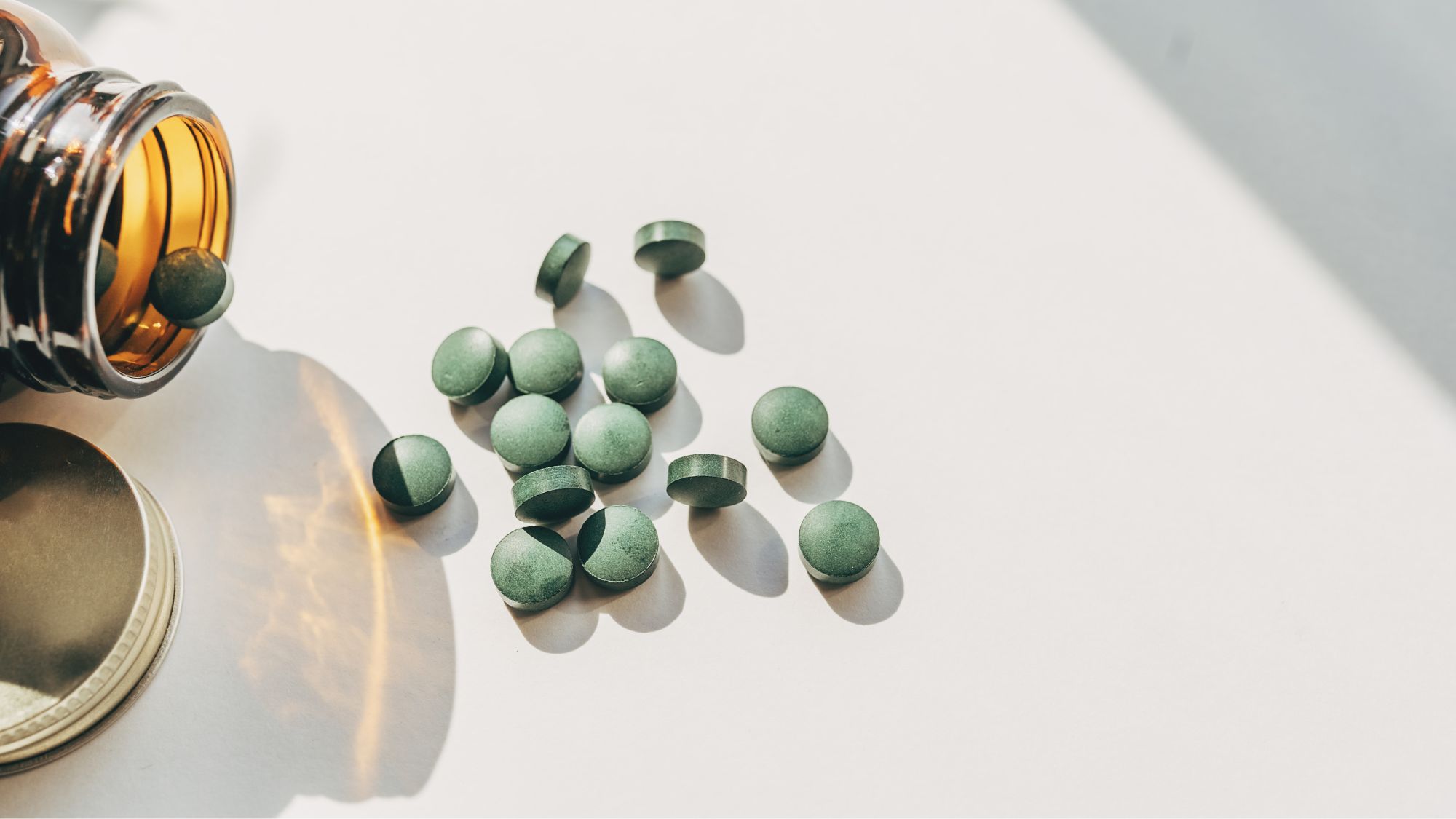

With an award-winning PhD in Probiotics and as a leading Research Fellow at King’s College London, it's fair to say I know a thing or two about gut health and which supplements to take to boost yours.
In the quest for better gut health, we’re willing to part with hundreds of pounds, particularly when it comes to live bacterial supplements or probiotics. New consumer research out today from SMART STRAINS shows that one in five (21%) of us are regular users of probiotics, each spending on average £130 per year, and with one in ten women (13%) spending over £200 annually.
Wondering, what are probiotics? And keen to know how I'd explain them to someone who's never heard of them? In short, probiotics are essentially live microbes (strains), which, when taken at the right time in the right way can have health benefits.
Gut health research has surged in recent years, and so too has public interest in these trillions of bacteria that live in our gut, alongside the supplements that are said to support them, including probiotics. What we’re discovering is that these bacteria are not just important for those who experience gut symptoms, which affect around 30% of people, but through the gut’s clever connections with almost all systems and functions in the body. Our microbes can influence things from our mental health and our heart health to our hormonal health, and even skin health.
Keen to read more about probiotics and whether you need to supplement them? Below, I share my honest, qualified take. And don't miss our guides to what causes bloating, simple gut health hacks to boost wellbeing, the most obvious unhealthy gut symptoms and how to get rid of a bloated stomach after flying, while you're here.
Should you take probiotics? I'm a world-renowned dietician and doctor - here's my take
What are the main benefits of taking a probiotic?
First up - it's key to acknowledge that our understanding of probiotics and how they work has evolved. The concept that taking a generic daily probiotic is going to improve your gut health is very simplistic and sadly outdated.
We now know that each different type of probiotic strain (aka, each different type of bacteria), actually does different things. That’s why it’s really important that you take the right strain, at the right time and in the right way, not just throw everything at it.
Marie Claire Newsletter
Celebrity news, beauty, fashion advice, and fascinating features, delivered straight to your inbox!
As a clinician, I would say there are four conditions with significant research that support the use of a specific probiotic as part of treatment and prevention, and that are backed by recommendations from international health bodies. This outlines when we should really start to consider taking a specific type of strain, i.e. a specific type of probiotic formulation, to help benefit our microbiome.
One is when you need to go on antibiotics, another is when you need immune support (for example, during cold and flu season), the third one is when you have a fussy, colicky baby, and the fourth one is when your vaginal microbiome is out of kilter, in other words, when you’re struggling with thrush, Bacterial Vaginosis (BV), or starting to feel an imbalance down there. These four areas currently have the strongest scientific evidence to suggest that probiotics can help.
There are around twenty or so other areas that we’re starting to investigate, including the link between probiotics and mental health, heart health, and so on. However, it’s essential to highlight that these areas still require more studies before recommendations can be made.
A post shared by Dr Megan Rossi (@theguthealthdoctor)
A photo posted by on
Any cons of taking probiotics?
The key is that you really do need to get specific.
If you’re taking a generic probiotic, then I’m afraid there’s no evidence to suggest that it will benefit you or your microbes. Plus, what most people also don’t realise is that if you’re taking a generic one at the wrong time, then it could have a negative impact on your microbiome, such as potentially delaying its recovery after antibiotics.
We need to be smart and specific with how we think about and use probiotics. Scientific research shows that if you are healthy, there is actually no evidence to support the use of a daily probiotic for your gut bacteria, and there are international probiotic guidelines confirming that live bacteria supplements used in this way are ineffective.
How do you know whether supplementing probiotics is for you?
You should only take probiotics when you need them.
The sad truth is that most consumers are not experiencing the benefits probiotics can offer (when used in the right way) as there’s so much confusion around them. For example, our consumer research revealed over half of us (51%) aren’t aware there are different strains to treat different conditions, while over two-thirds (68%) don’t know that it’s recommended to take a course of probiotics alongside taking antibiotics. This is because antibiotics can disrupt your natural gut microbiome, with diarrhoea being a common side effect. So, when you’re about to go on antibiotics you should take the right strain, at the right time and in the right way to help reduce the negative impact of antibiotics on gut microbiome diversity.
Overall, I would suggest finding out if human studies prove that the probiotic you’re looking at actually works for the condition or symptom you’re hoping to address. If so, check the dose and duration that you need to take it for in order to see a benefit.
Each different condition requires a different probiotic formulation, as well as dose, and duration to which you should take it to see that benefit. For example, when it comes to the vaginal microbiome, if you have thrush or Bacterial Vaginosis (BV) then alongside conventional therapy like antibiotics or antifungal therapy, studies have shown that taking a specific probiotic formulation can significantly reduce the symptoms and recurrence of both thrush and BV. It’s recommended that you take a double dose during treatment, plus a single maintenance dose longer term to reduce the risk of recurrence. Whereas if you’re going on antibiotics then you would just take the specific probiotic formulation during your antibiotic course and one week after.
A post shared by Dr Megan Rossi (@theguthealthdoctor)
A photo posted by on
Bottom line?
It’s important to be cautious about what additives are in your supplements. While we’re all becoming more aware of additives in food because of the whole Ultra Processed Food (UPF) movement, people don’t always check what’s their supplements.
Our research showed that only 25% of women always check the labels of the probiotics brands they’re buying. What’s really concerning is that many of these products that claim to be good for your gut can include things like added sugars and emulsifiers, going against fundamental gut health principles. So, I’d always recommend checking the labels before making your purchase.
Keen to read more about Dr Megan's new supplement brand? Visit smartstrains.com to find out more.
Shop Megan's new probiotic range now:
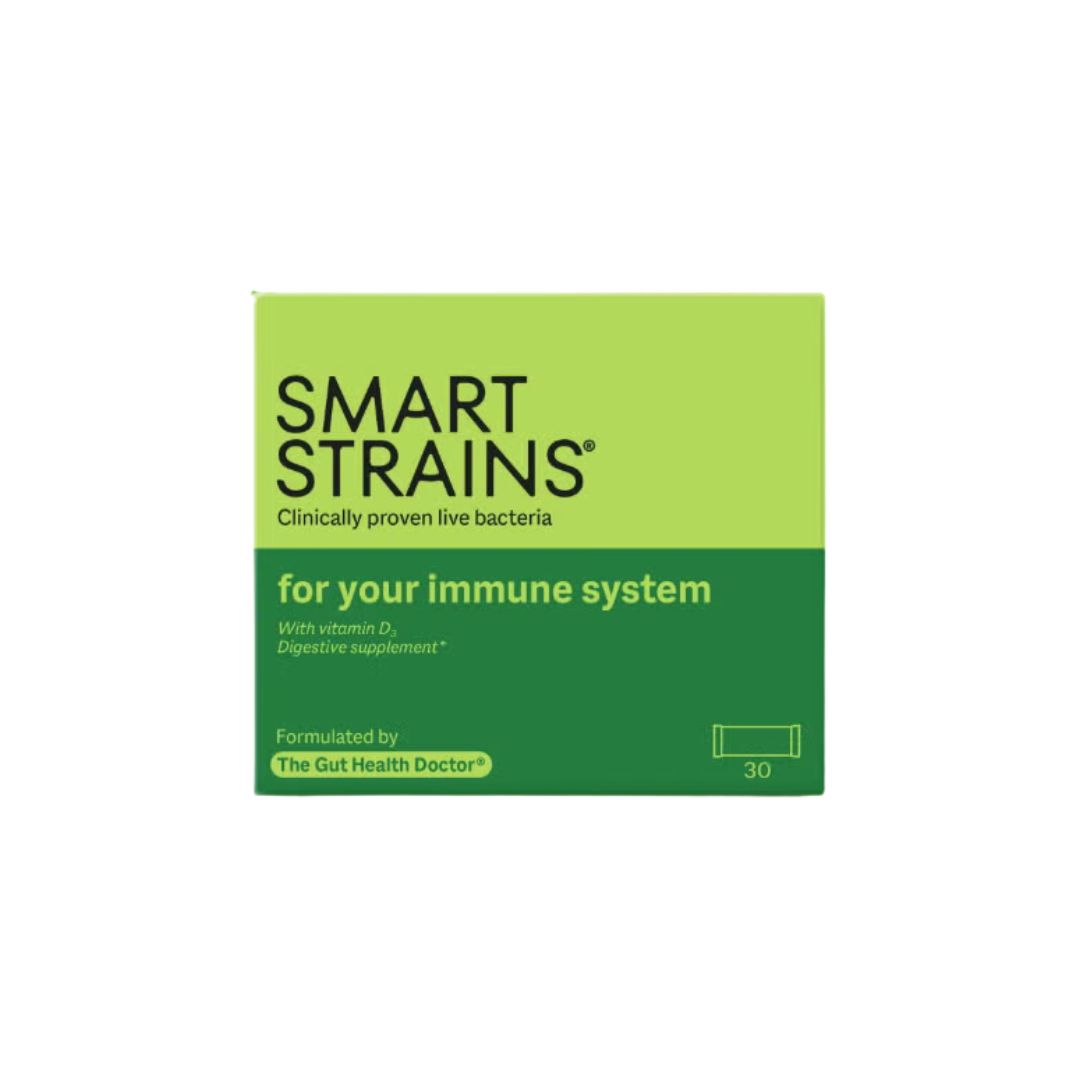
Containing 30 billion live bacterial strains of Lactobacillus rhamnosus, LGG®, Bifidobacterium lactis, BB-12®, and vitamin D3, this powder format promises to taken directly via your mouth.
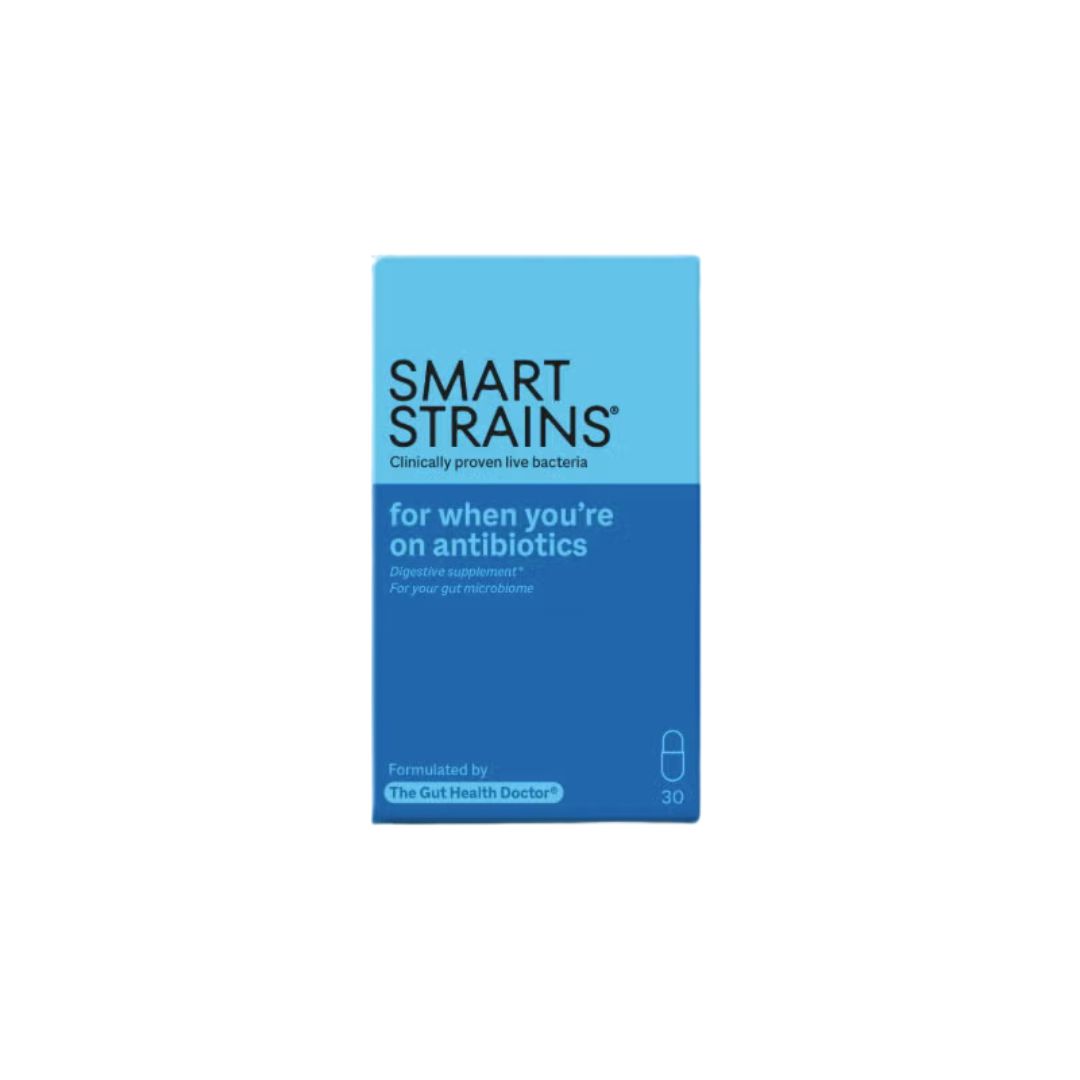
Each Smart Strains capsule provides ten billion live Lactobacillus rhamnosus, LGG®, replicating the exact bacterial formula and dose used in clinical trials.
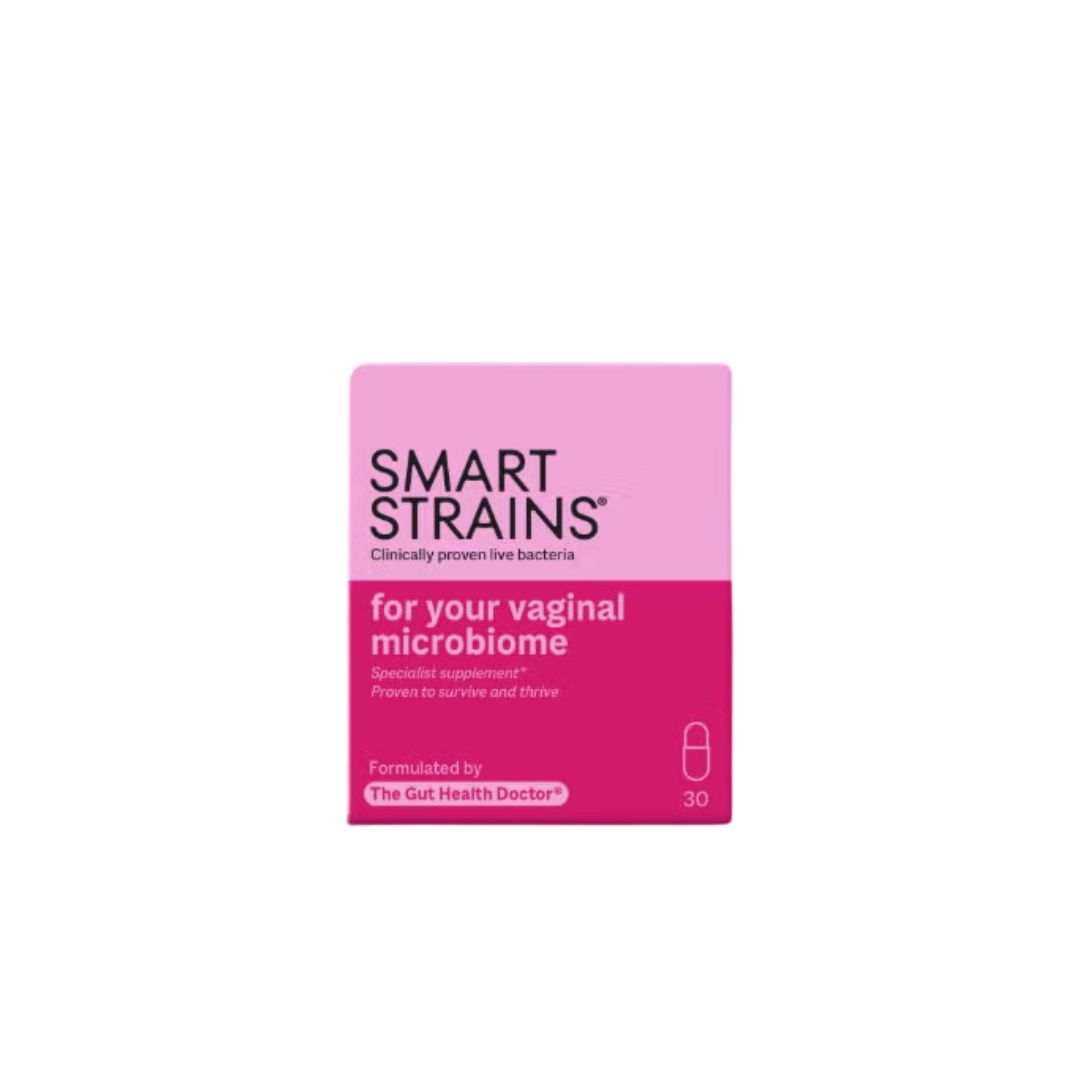
Your vagina is home to billions of bacteria, all of which play a pivotal role in your intimate health. This probiotic includes Lactobacillus acidophilus La-14®, Lactobacillus rhamnosus HN001™ and lactoferrin, all of which have been clinically proven to colonise the vagina and reduce candida growth.
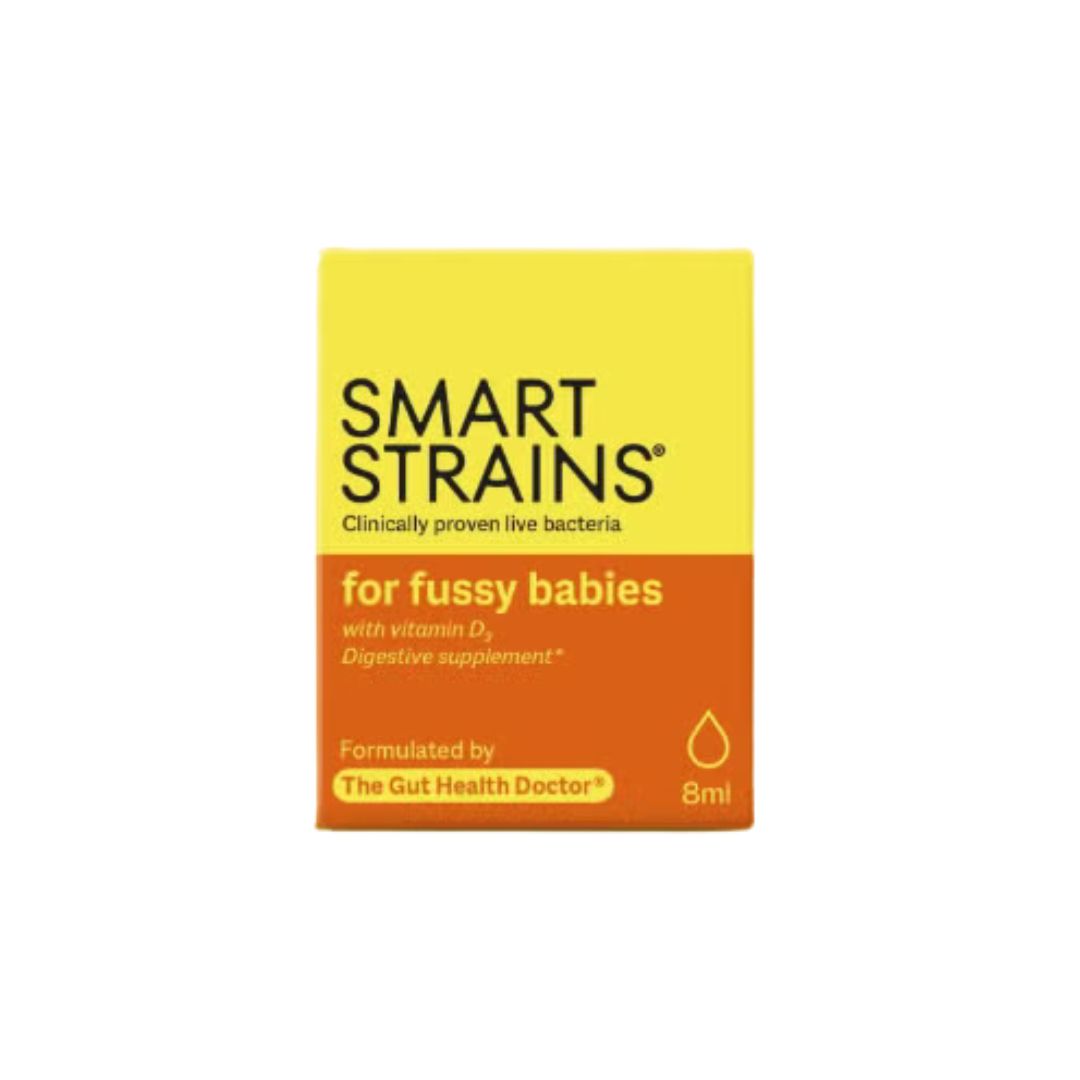
Last but by no means least, Smart Strains for fussy babies includes Bifidobacterium lactis, BB-12® - the world's most published Bifidobacterium strain - based on recommendations from the World Gastroenterology Organisation Guidelines on Probiotics and leading Paediatric guidelines, for fussy babies.

I'm Megan, a gut health scientist and registered dietician. I founded my brand, The Gut Health Doctor, back in 2017, with a dream to empower everyone to take control of their health. As a scientist and practising clinician, I became frustrated that the ground-breaking research from my team and other colleagues around the world wasn’t reaching the public.
-
 Here's a rundown of The White Lotus cast members who have dated in real life
Here's a rundown of The White Lotus cast members who have dated in real lifeBy Jenny Proudfoot
-
 All the coolest brides are wearing drop-waist wedding dresses this year
All the coolest brides are wearing drop-waist wedding dresses this yearWedding Special Minimalist, nostalgic, and universally flattering
By Clementina Jackson
-
 Anya Hindmarch has just launched a fantastical diving shop in central London
Anya Hindmarch has just launched a fantastical diving shop in central LondonFor those who would rather be beside the seaside...
By Sofia Piza
-
 Road To Recovery: I'm a Health Editor and marathon runner who’s long struggled to make recovery a habit - enter, my lazy girl's guide to R&R
Road To Recovery: I'm a Health Editor and marathon runner who’s long struggled to make recovery a habit - enter, my lazy girl's guide to R&RRecovery is all too easy to skip when you’re busy, but it’s as essential as working out to boost wellbeing - which is where these handy tips come in.
By Ally Head
-
 I tried TikTok's lemon balm tea for a week to see if it can really help to reset your nervous system - my honest review
I tried TikTok's lemon balm tea for a week to see if it can really help to reset your nervous system - my honest reviewSit back and pour yourself a cup of calm.
By Anna Bartter
-
 The entire UK seems to be obsessed with saunas RN - 9 benefits to know about, if you're considering giving them a go
The entire UK seems to be obsessed with saunas RN - 9 benefits to know about, if you're considering giving them a goEnter your Scandi girl era.
By Anna Bartter
-
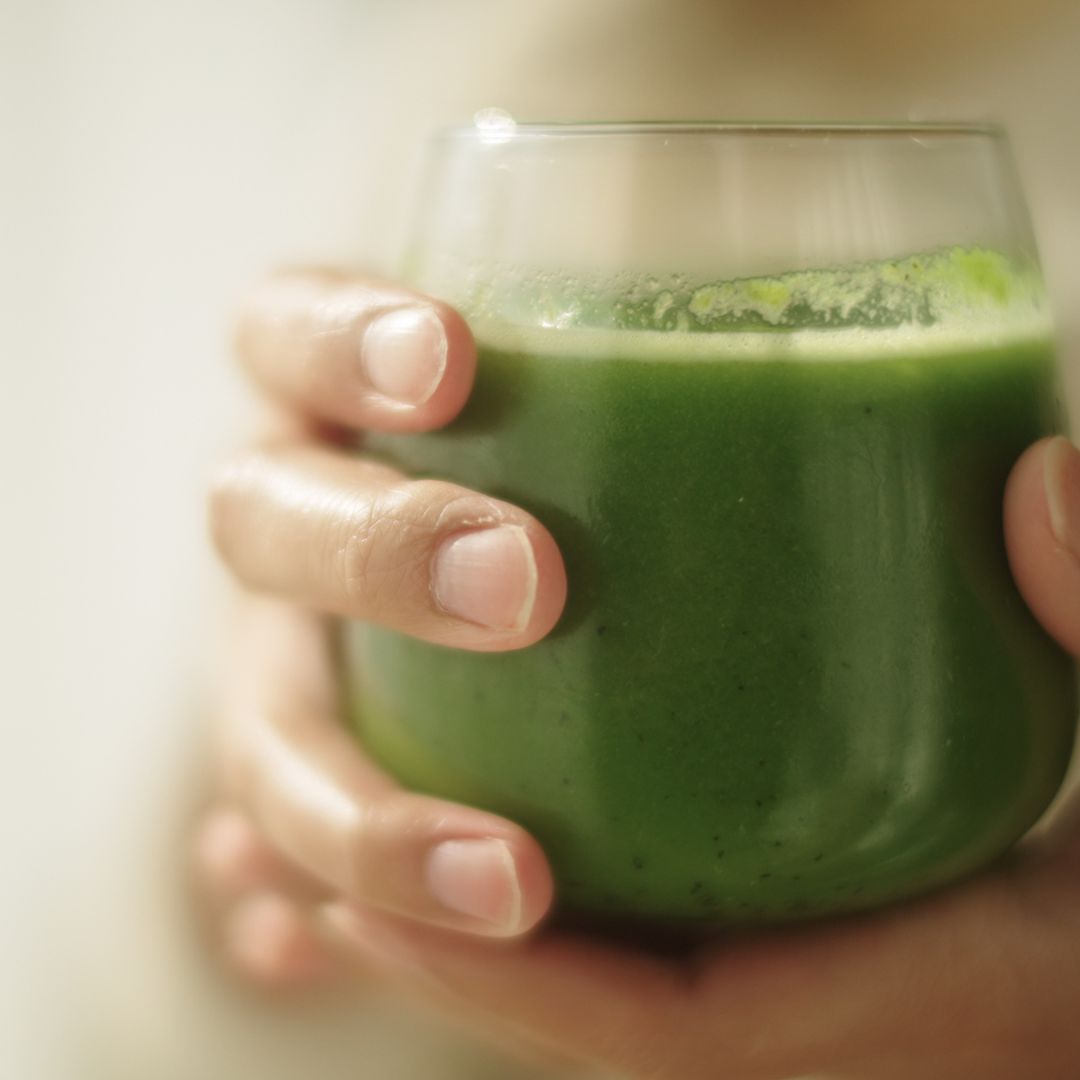 10 common nutrition myths a registered dietician swears they'd never follow - and wants you to avoid, too
10 common nutrition myths a registered dietician swears they'd never follow - and wants you to avoid, tooYou might find these surprising...
By Katie Sims
-
 Wellness Escapes: I went to Bali in search of winter sun, I came home with a new lease of life
Wellness Escapes: I went to Bali in search of winter sun, I came home with a new lease of lifeThis White Lotus-style sanctuary taught me how to relax
By Mischa Anouk Smith
-
 As Mel Robbins' Let Them theory gains global traction - how the simple tool promises to transform your life
As Mel Robbins' Let Them theory gains global traction - how the simple tool promises to transform your lifeNot to mention, help you take back control.
By Katie Sims
-
 I tried Jennifer Aniston's 80/20 approach to wellness - and can't tell you how refreshing I've found it
I tried Jennifer Aniston's 80/20 approach to wellness - and can't tell you how refreshing I've found itIt's all about balance.
By Katie Sims
-
 It's one of the most fun home workouts you can do: 6 best exercise hula hoops to add to your fitness regime
It's one of the most fun home workouts you can do: 6 best exercise hula hoops to add to your fitness regimeThey're very affordable, too.
By Amelia Yeomans